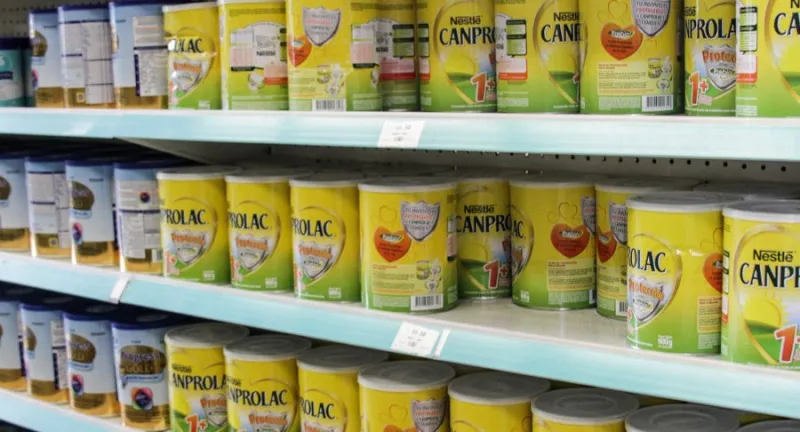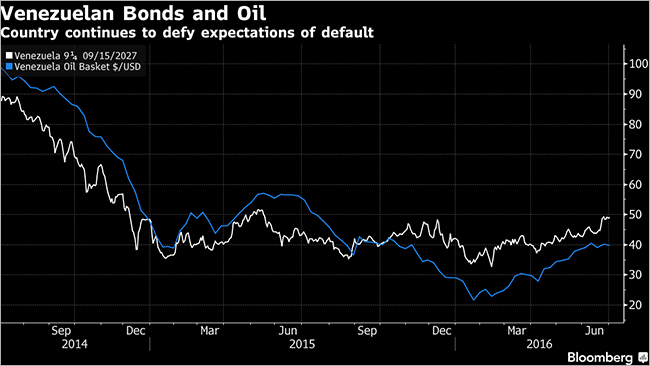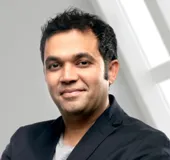
Let’s try assigning a time and person coordinate to the below statement: "We’re going to show imperialists and the international right that the people are present, with their farm instruments in one hand and a gun in the other.. to defend their sacred land."
Castro, late 1960's? Well, it’s actually dated just a month ago, and mouthed by the beleaguered Venezuelan President, Nicholas Maduro.
Venezuela, one of the biggest losers in Latin America with the plummeting of oil prices has seen its economy shrinking for seven straight quarters since the start of 2014. Its exports are expected to drop to USD 27 billion in 2016 from USD 75 billion two years ago. Add to this, the deepening food crises, as the government does not have enough dollars to import basic food items like break, milk and eggs. Food riots, day long queues for basic necessities and worsening internal security have led to food being transported under armed guard.
The mother of all ironies is that Venezuela has the largest proven oil reserves in the world. For a country with oil beneath and an empty food plate above speaks volumes about sheer economic mismanagement since the times of Hugo Chavez, and is a shining example of the Dutch disease becoming an epidemic.
< style="color: #0069a6;">The mother of all ironies is that Venezuela has the largest proven oil reserves in the world.
With public opinion sharply turning against President Maduro, he has laid the blame squarely on 'Western imperialists' and their grand design to shake this utopian socialist nation from its foundations. "It's a strategically planned war," he says, "also aimed at Venezuela, to try and destroy our revolution and cause an economic collapse," accusing the United States of trying to flood the market with shale oil.
To address the economic woes, Maduro has made distraction a state policy. Accusations, which range from blaming the right-wingers and America on sabotaging the economy, to others which blame Spiderman at the root of violence in Venezuela (the explanation Maduro offers is that youth violence is correlated to superhero idolisation, and a violent kid like Spiderman contributes to teenagers carrying guns and killing after hours of violent show re-runs), are flying thick and fast in this accusation-a-day regime.
Not that the blame lies entirely on Maduro — he inherited a crumbling edifice from Chavez, built on the temporary foundation of high oil prices. A votary of Bolivarian Socialism, Maduro added a few catastrophic damages of his own, like nationalising 1200 private companies accused of working against public interest, borrowing heavily in the global markets and printing money recklessly.
In these miserable and mismanaged times, there are two unknowns for the country and one known. Whether Venezuela will default on its bonds and whether Maduro would be recalled are sheer unknowns. What’s known for sure is that the prevailing food crisis is here to stay for a while.
Let’s look at the default option. Venezuela has surprised economists globally, by not defaulting yet on its bond payments. Month after month, for the last two years, economists predicted a bond collapse and default, only to see Maduro’s government honouring all the bond payments till date.
 Source: Bloomberg
Source: Bloomberg
An uncomfortable question was posed by Harvard Economist Ricardo Haussman (a native Venezuelan) on why Venezuela is honouring foreign debt, when it can use that to pay for desperately need food and medical supplies for its impoverished millions. Conspiracy theories fly thick and fast, but the fact remains, that Venezuela has chosen not to default till now. Whether they’re waiting for oil prices to rebound or determined not to go the Argentine way, the government is not keen on prioritising immediate food buying. The food crises, is therefore sure to be an economic fallout.
< style="color: #0069a6;">Conspiracy theories fly thick and fast, but the fact remains, that Venezuela has chosen not to default till now.
The second unknown of whether Maduro has a political future is equally confusing. Though most Venezuelan’s have had enough of Maduro, a gridlock could be created by the Supreme Court.
In January this year, the opposition party (which lost by only 1.5% vote in the last parliamentary elections), took 109 seats in Congress, way ahead of Maduro’s 55 .With the opposition controlling 65% of the Congress, they could, theoretically, fire Maduro’s cabinet members and pass reforms. It is already pushing for a referendum to recall Maduro. However, Maduro had smartly appointed new Supreme Court judges just before the new Congress took office and the courts could overturn the opposition decisions and legislation, creating further gridlock.
Even if the new party is to come to power, challenges abound on steering this leaky ship out of the economic storm and it could be a full year or more before the food crises is sorted.
And this is where India can come in. Food.
China and Russia have long been economic partners and political champions of Venezuela. Russia, given its own dependence on oil has its own internal house to sort before offering real substantial help to Venezuela. China, however, has made substantial inroads. For more than a decade, Chinese firms, ranging from petroleum companies (China National Petroleum Company), to consumer appliances (Haier), to device assembly to car spare parts (Chery Automobile Co. Ltd.), all have had a substantial share in the economic process here.
Chinese equipment and advisors have never been in short supply in Venezuela, so as much, economists point that in case of a default crises, China might come to the rescue. Might.
In this context, with India expanding its economic and strategic footprint globally, Venezuela might serve a possible route to earn substantial goodwill in Latin America. A quick assembling of donor nations and India’s allies, (not under the auspices of the United Nations — of which the socialist government in Caracas is perpetually suspicious), a no-conditions attached, food aid would be a good start. Not only would India stand up for humanitarian crises of crippling proportions, but also be seen as an influential player.
< style="color: #0069a6;">With India expanding its economic and strategic footprint globally, Venezuela might serve a possible route to earn substantial goodwill in Latin America.
As many countries in the SAARC neighbourhood have started accepting India and China as co-existing and not exclusive powers, this Latin American nation too, given its harmonious relations with India, will be sure to appreciate and respond. (In UPA time, India had offered to set up an IT centre of excellence in Venezuela).
The way ahead might hold opportunity and goodwill for India, and a temporary solution to the empty food plate in Venezuela. The longer solution however, for Venezuela lies not in banning Spiderman, but diversifying the economy beyond oil, a timely lesson for the possible dominoes in most of the Middle East and Latin America.
The views expressed above belong to the author(s). ORF research and analyses now available on Telegram! Click here to access our curated content — blogs, longforms and interviews.
 Let’s try assigning a time and person coordinate to the below statement: "We’re going to show imperialists and the international right that the people are present, with their farm instruments in one hand and a gun in the other.. to defend their sacred land."
Castro, late 1960's? Well, it’s actually dated just a month ago, and mouthed by the beleaguered Venezuelan President, Nicholas Maduro.
Venezuela, one of the biggest losers in Latin America with the plummeting of oil prices has seen its economy shrinking for seven straight quarters since the start of 2014. Its exports are expected to drop to USD 27 billion in 2016 from USD 75 billion two years ago. Add to this, the deepening food crises, as the government does not have enough dollars to import basic food items like break, milk and eggs. Food riots, day long queues for basic necessities and worsening internal security have led to food being transported under armed guard.
The mother of all ironies is that Venezuela has the largest proven oil reserves in the world. For a country with oil beneath and an empty food plate above speaks volumes about sheer economic mismanagement since the times of Hugo Chavez, and is a shining example of the Dutch disease becoming an epidemic.
Let’s try assigning a time and person coordinate to the below statement: "We’re going to show imperialists and the international right that the people are present, with their farm instruments in one hand and a gun in the other.. to defend their sacred land."
Castro, late 1960's? Well, it’s actually dated just a month ago, and mouthed by the beleaguered Venezuelan President, Nicholas Maduro.
Venezuela, one of the biggest losers in Latin America with the plummeting of oil prices has seen its economy shrinking for seven straight quarters since the start of 2014. Its exports are expected to drop to USD 27 billion in 2016 from USD 75 billion two years ago. Add to this, the deepening food crises, as the government does not have enough dollars to import basic food items like break, milk and eggs. Food riots, day long queues for basic necessities and worsening internal security have led to food being transported under armed guard.
The mother of all ironies is that Venezuela has the largest proven oil reserves in the world. For a country with oil beneath and an empty food plate above speaks volumes about sheer economic mismanagement since the times of Hugo Chavez, and is a shining example of the Dutch disease becoming an epidemic.
 Source: Bloomberg
Source: Bloomberg